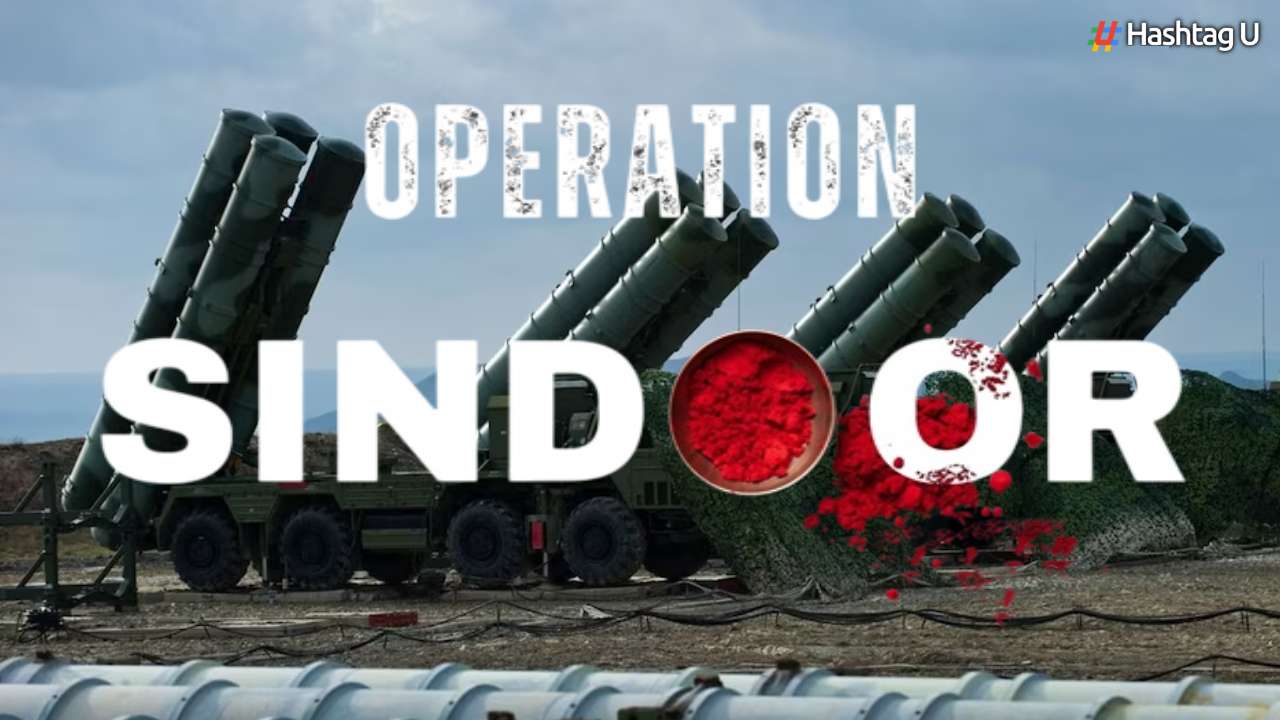Operation Sindoor: India Neutralises Pakistani Missile and Drone Attacks, Launches Precision Counterstrikes
India’s coordinated counterstrikes and robust air defence systems thwarted Pakistan’s second wave of drone and missile attacks within 24 hours, which targeted over 15 cities. Blackouts were implemented across several states as security forces remained on high alert.
Kode Mohan Sai | Published On: May, 9, 2025 | 10:55 AM

Operation Sindoor: India successfully repelled a large-scale missile and drone assault launched by Pakistan late Thursday night, aimed at strategic military installations across Jammu, Pathankot, Udhampur, and other key locations, amid rapidly escalating tensions between the two nuclear-armed neighbours.
Explosions and warning sirens echoed through Akhnoor, Samba, Baramulla, Kupwara, and surrounding border regions as Indian forces were placed on high alert and initiated intensive aerial surveillance. The offensive marked Islamabad’s second attempt within 24 hours to target Indian military infrastructure.
In response, Indian defence forces swiftly activated both kinetic and non-kinetic countermeasures, adhering to standard operating procedures. “The threats were swiftly neutralised… No casualties or material losses were reported,” a Defence Ministry spokesperson told news agency PTI.
India Strikes Back:
Pakistani strikes late Thursday focused on Jammu’s Satwari, RS Pura, Arnia, and Samba sectors. Indian air defence systems, including Pechora missiles and SAMAR systems, intercepted and neutralised the incoming threats effectively.
Since Wednesday night, Pakistan had attempted a coordinated aerial campaign involving drones and missiles across 15 Indian cities, including Awantipura and Srinagar (J&K), Amritsar, Kapurthala, Jalandhar, Ludhiana, Adampur, Bathinda (Punjab), Chandigarh, and military bases in Rajasthan and Gujarat.
India launched a pre-dawn counter-offensive on Friday, targeting Pakistani military infrastructure. Kamikaze drones were deployed to strike an air defence system near Lahore. “Indian armed forces this morning targeted air defence radars and systems at several locations in Pakistan,” the Defence Ministry stated.
“The Indian response was proportionate and precise, matching the domain and intensity of Pakistan’s attacks. Reliable sources confirm the destruction of an air defence unit near Lahore,” the statement added.
The Indian Air Force confirmed that all critical air defence systems remain operational and vigilant, having successfully deployed counter-unmanned aerial systems and air defence artillery throughout the engagement.
Blackouts Enforced, Drone Threats Neutralised Amid Escalating Cross-Border Tensions:
A coordinated blackout was enforced across key regions in Jammu and Kashmir, Punjab, the Union Territory of Chandigarh, and parts of Rajasthan on Thursday evening, following a series of aerial attacks launched by Pakistani forces. The offensive involved drones, munitions, and multiple ceasefire violations along the Line of Control (LoC), prompting heightened military vigilance across India’s western border.
In Jammu, a sudden power outage shrouded the city in darkness late Thursday night, shortly after two loud explosions—believed to be the result of intercepted enemy drones—shook the area. Sirens blared across the city, urging residents to take cover. According to security officials, the threat was swiftly neutralised between 3:50 am and 4:45 am, with no reported casualties.
Similar defensive measures were implemented in Punjab, where districts including Pathankot, Amritsar, Jalandhar, Hoshiarpur, and Mohali—along with Chandigarh—experienced power shutdowns. In Pathankot, air raid sirens were activated around 8:30 pm after hostile drones were detected and engaged. Power has since been restored in several areas.
In Rajasthan, residents of Jaisalmer and nearby districts bordering Pakistan also reported hearing heavy explosions, followed by enforced blackouts, plunging large stretches of the region into darkness as a precautionary measure.
Operation Sindoor: India’s Retaliatory Strikes Intensify
The escalation follows India’s precision military operation, codenamed Operation Sindoor, which targeted nine terror infrastructure sites across Pakistan and Pakistan-Occupied Kashmir (PoK). The operation was conducted in retaliation for the Pahalgam terror attack in April, which claimed the lives of 26 civilians, predominantly tourists. With tensions continuing to rise, fears of a broader conflict remain.
Addressing the nation amid the unfolding crisis, Defence Minister Rajnath Singh reaffirmed India’s resolve. “No limit will become an obstacle to protecting India’s sovereignty. India has always chosen restraint and diplomacy—but if our restraint is mistaken for weakness, the response will be decisive,” he stated.
“Our armed forces are fully prepared for responsible and proportionate responses in the future as well,” Singh added, underscoring India’s readiness and strategic clarity.







